Can Dogs Eat Beans?
Late-night snack session and your pup gives the “Can I share?” look? It’s common to wonder: ‘Can dogs eat beans?’ Just as mom advocated beans for us, most beans are safe and beneficial for dogs, too. But remember, not all beans are equal.
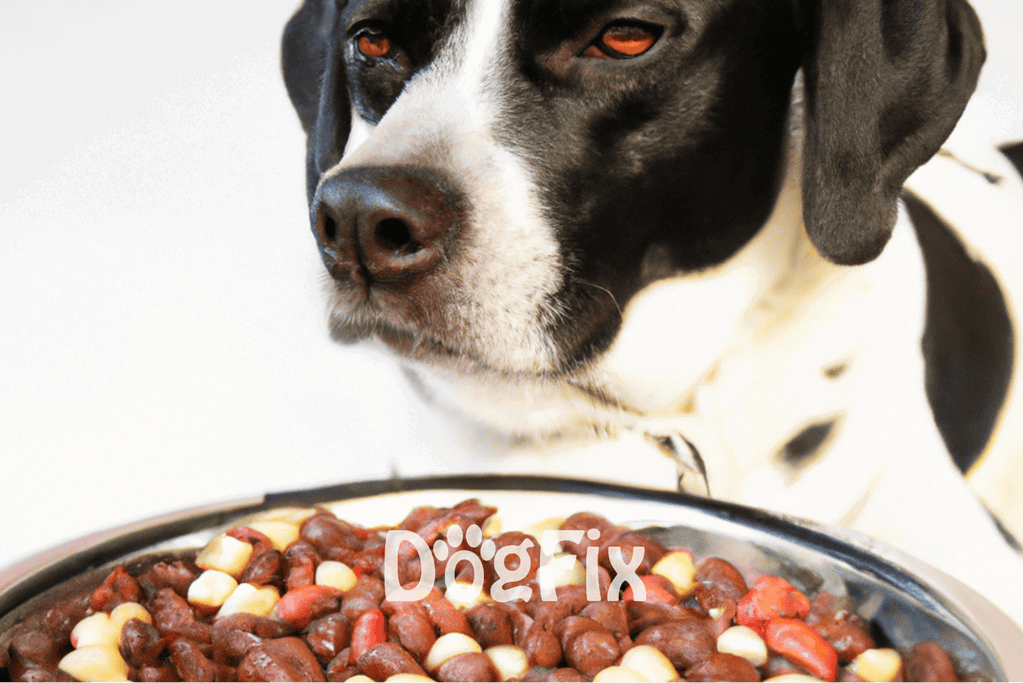
So, before we spill the beans on beans, let’s get the facts straight!
Beans are indeed nutritional gems for dogs, rich in vitamins, minerals, and protein.
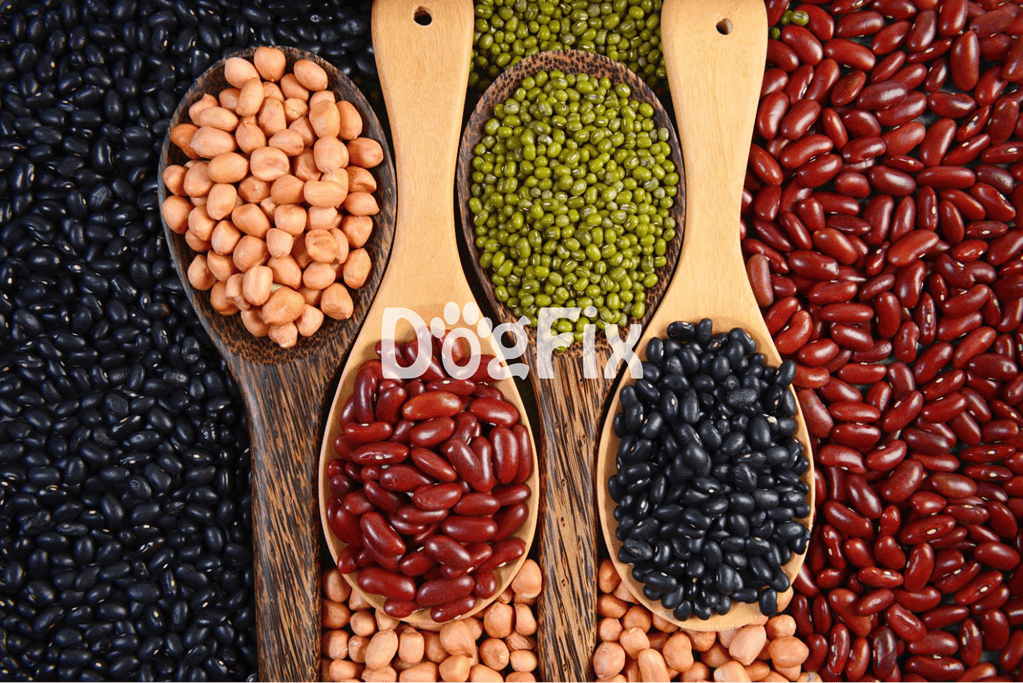
However, not all beans are trouble-free. Although nutrient-rich, some can cause issues if not prepared correctly. Before serving beans to Fido, ensure they’re cooked properly to prevent tummy troubles. Let’s make it fun and safe for our pups!
The Nutritional Value of Beans
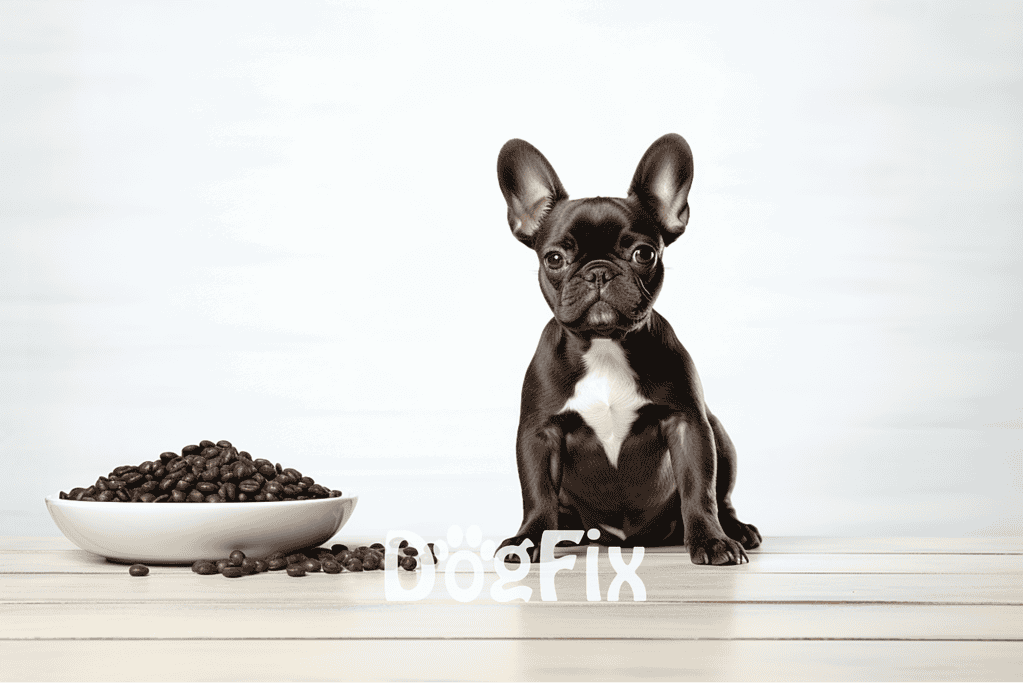
Ever look at a bean and wonder what’s so fascinating about this little fella? Well, the secret is in the stuffing!
Protein and Fiber
Beans are full of proteins and fibers. They have the muscle-building and tissue-repairing action covered, thanks to their protein content.
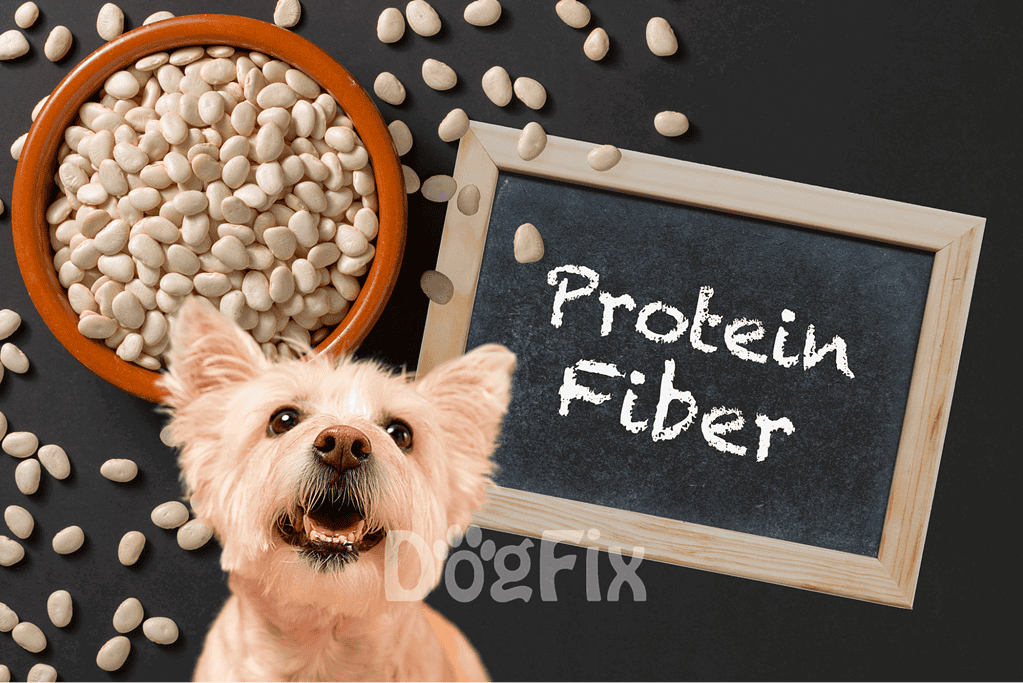
And if your fur buddy’s having a rough time with digestion? Worry not because beans also have fiber to regulate bowel movements.
Vitamins and Minerals
Beans are vitamin and mineral powerhouses, ensuring your dog stays in top form. They’re packed with B-vitamin, vital for a well-functioning metabolism and nervous system.
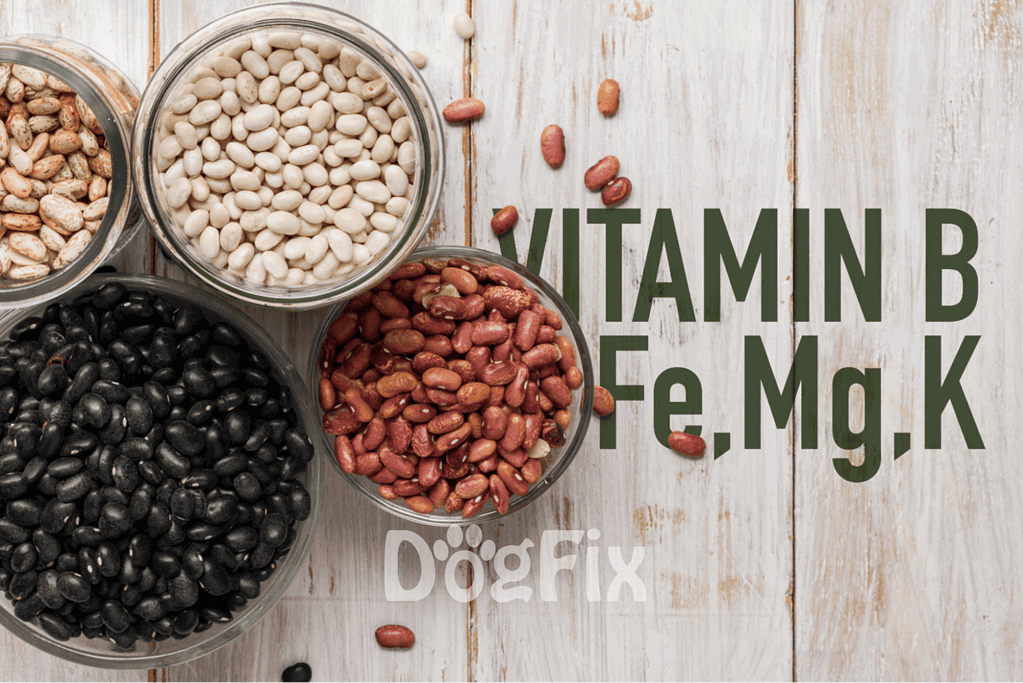
Beyond that, beans are an excellent source of iron, magnesium, and potassium. Iron is essential for red blood cell production, while magnesium ensures peak nerves and muscle function. Potassium helps regulate fluid balance and blood pressure.
Antioxidants
Yep, beans have it all, even antioxidants! These protect your pooch’s cells from those troublemaking free radicals.
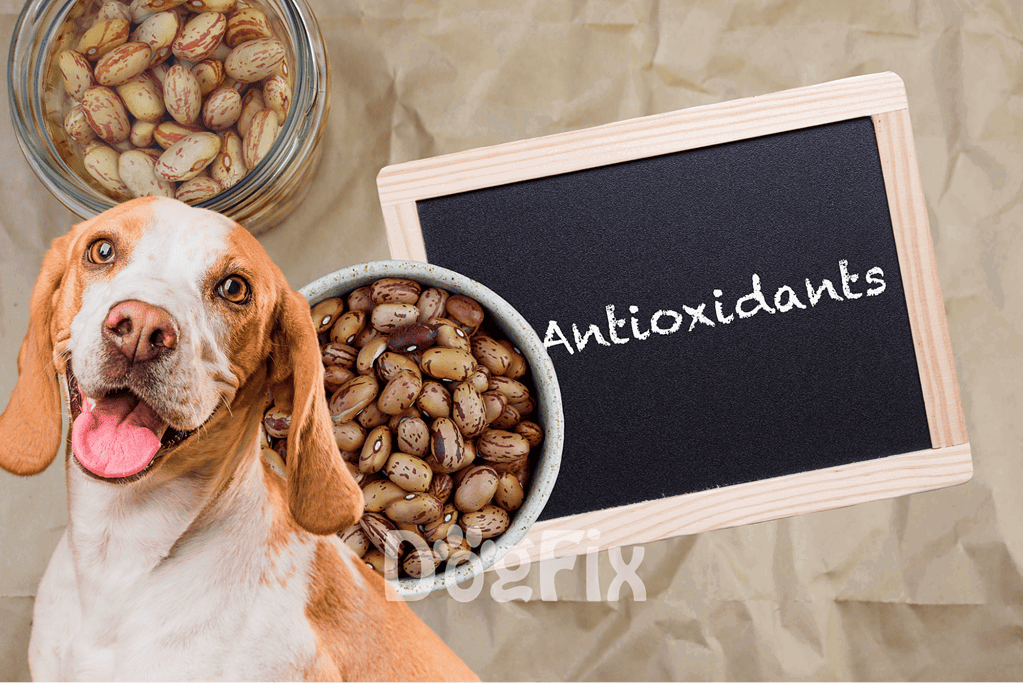
Adding beans to your dog’s diet is like giving them a tiny army of cell protectors, kicking oxidative stress to the curb and promoting overall health. Beans sure do pack a punch for their size.
Types of Beans and Their Effects
Green Beans
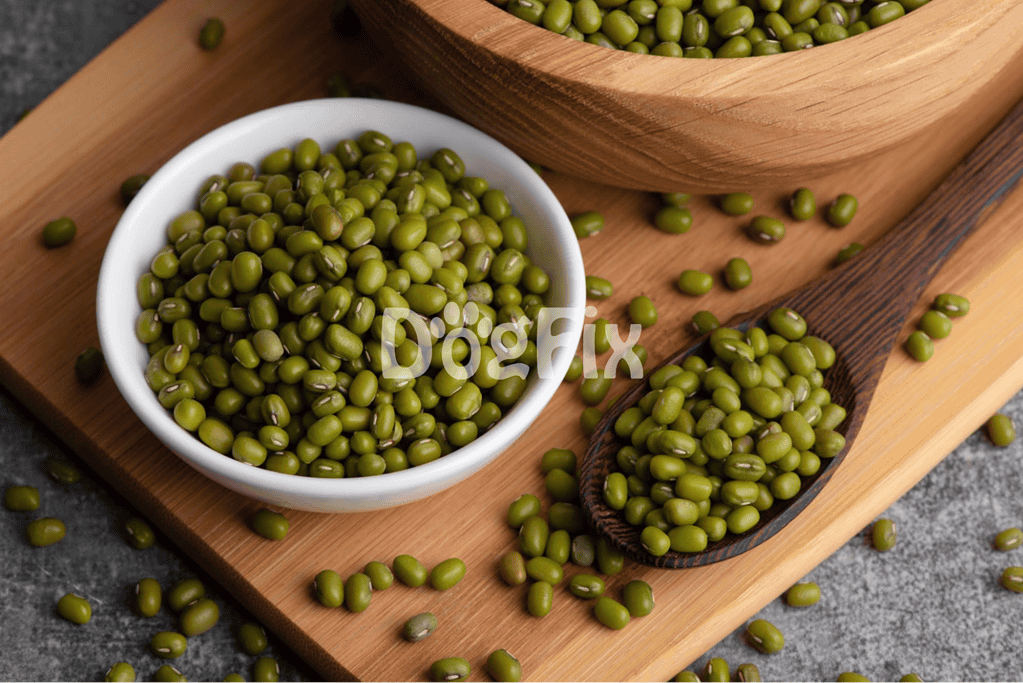
Low on calories, high on fiber, and packed with vitamins like A, C, and K – green beans have got the goods. But watch out for those strings! They could become a choking hazard, so chop ’em up before you serve them to your pooch, and remember – moderation is the key.
Kidney Beans
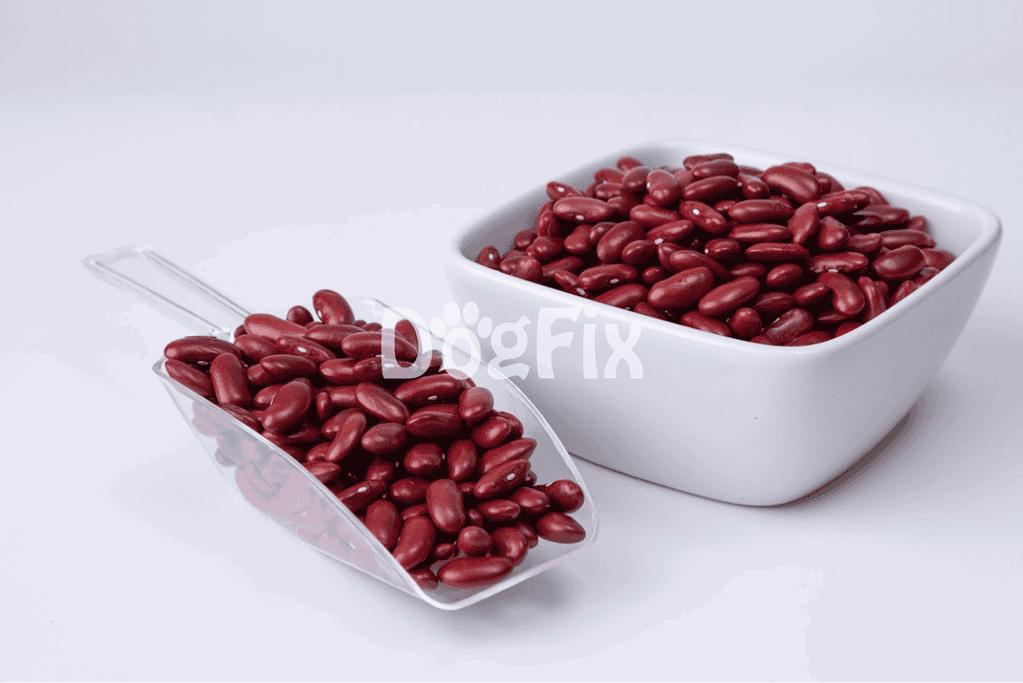
Kidney beans are a powerhouse of protein, fiber, antioxidants, and crucial minerals. But hold up! Raw kidney beans contain a lectin that’s toxic for dogs. So, be a champ and always cook ’em well before letting your fur buddy chow down.
Black Beans
Black beans are packed with protein, fiber, and antioxidants. But don’t go overboard; too many and your pooch might get digestive upset and gas. Introduce these little black wonders slowly into your dog’s diet.
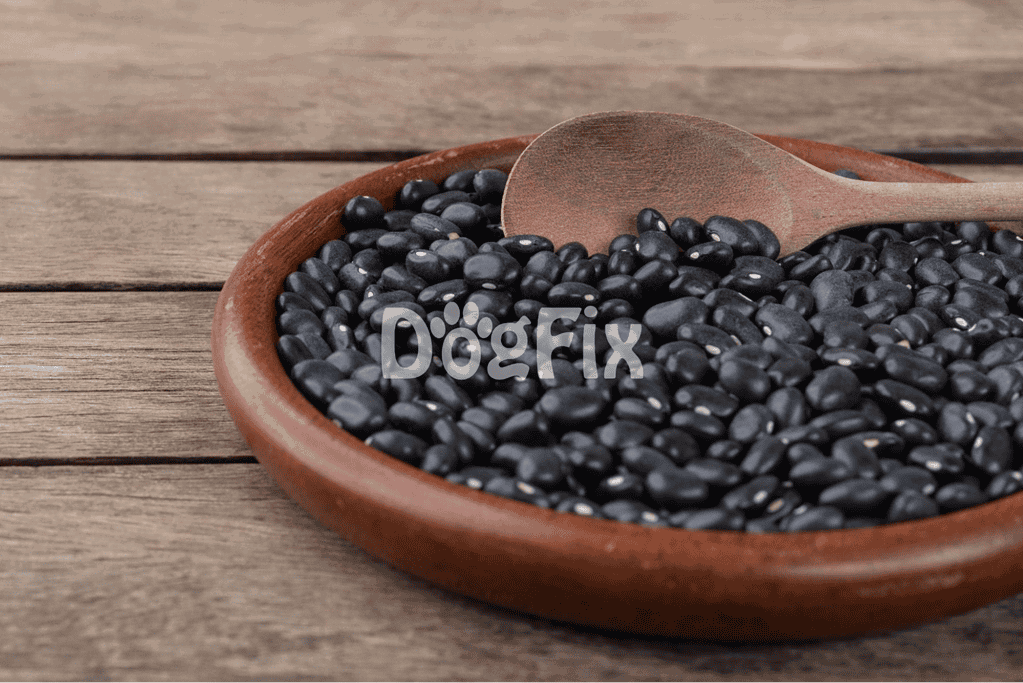
Pinto Beans
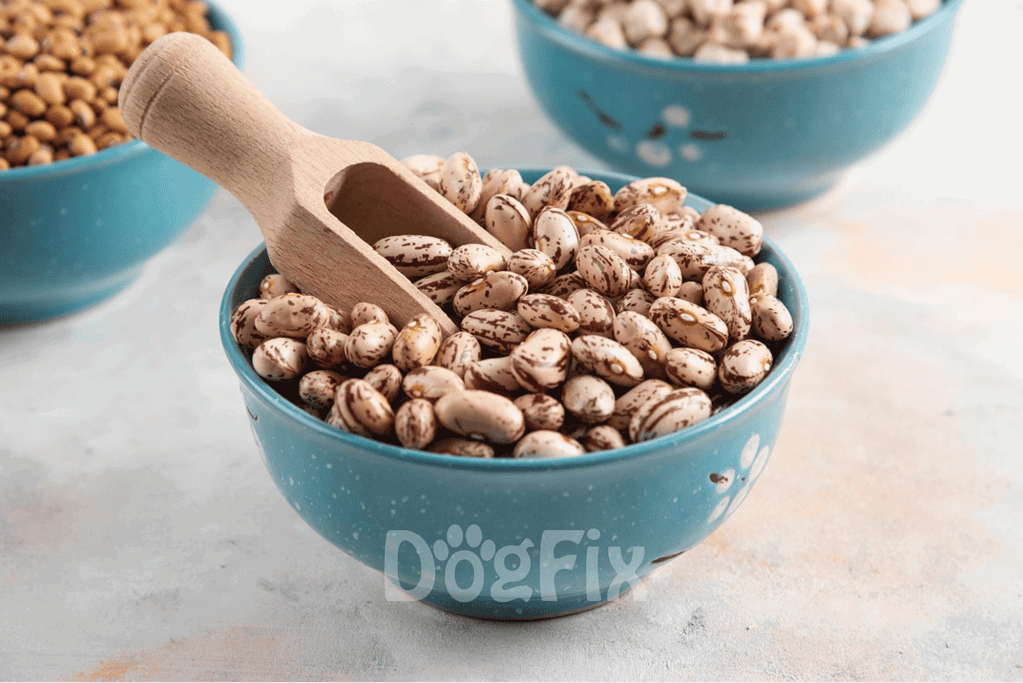
Pinto beans, another win for your furry friend. They’re stuffed with protein, fiber, iron, and magnesium. Remember to cook them and serve small amounts. No one wants a gassy pupper, right?
Lima Beans
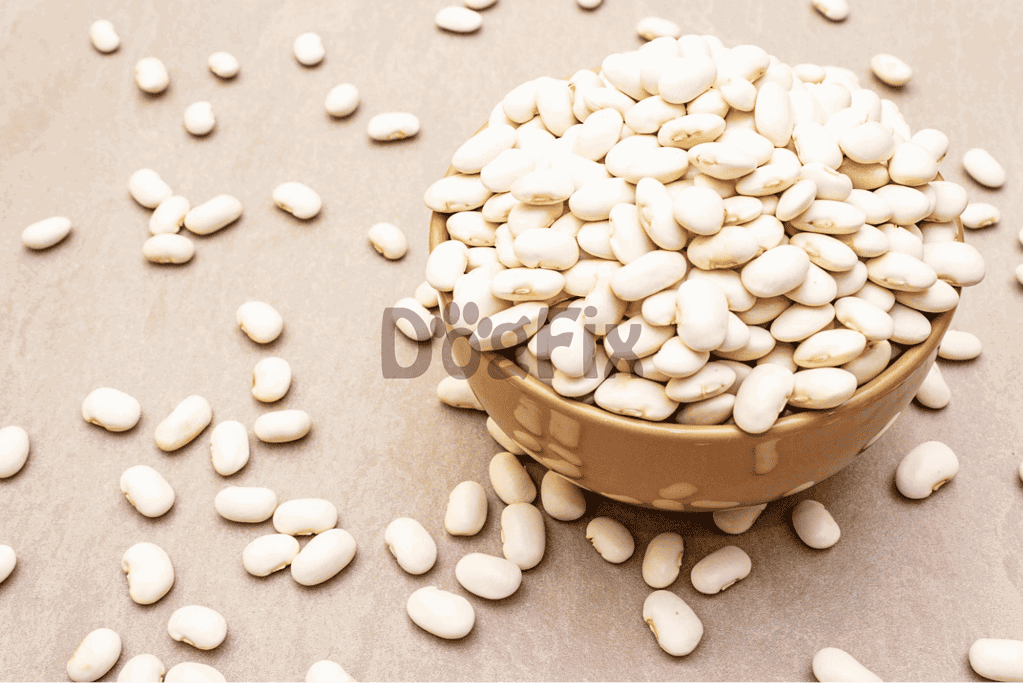
Say hello to butterbeans, or Lima beans. Available dried or frozen, they’re filled with protein, fiber, potassium, and numerous nutrients. But wait, don’t serve them raw! They contain linamarin, which could be toxic in large amounts.
Soybeans
Finally, soybeans. They’re big on protein, fiber, calcium, iron, and phosphorous. Sounds great, right? One caveat: some dogs could be allergic to soy.
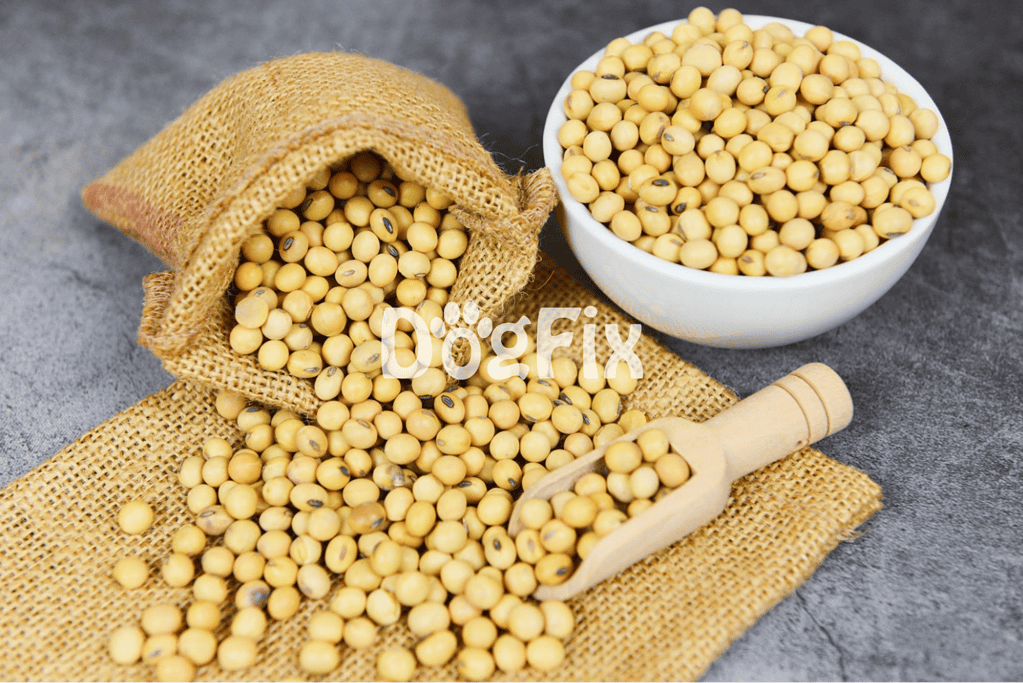
Monitor your dog’s reactions when you first serve these little beans. This way, the only surprise you’ll have is how quickly they’re gobbled up!
Enjoying this read?
We publish this content for free to generate interest in our Premium members' area. By subscribing, you can ask the writer any questions related to pet care and this article, get access to 100+ Premium Pet Care Guides and go Ad-Free with DogFix Premium for $2.99.
Potential Risks of Beans
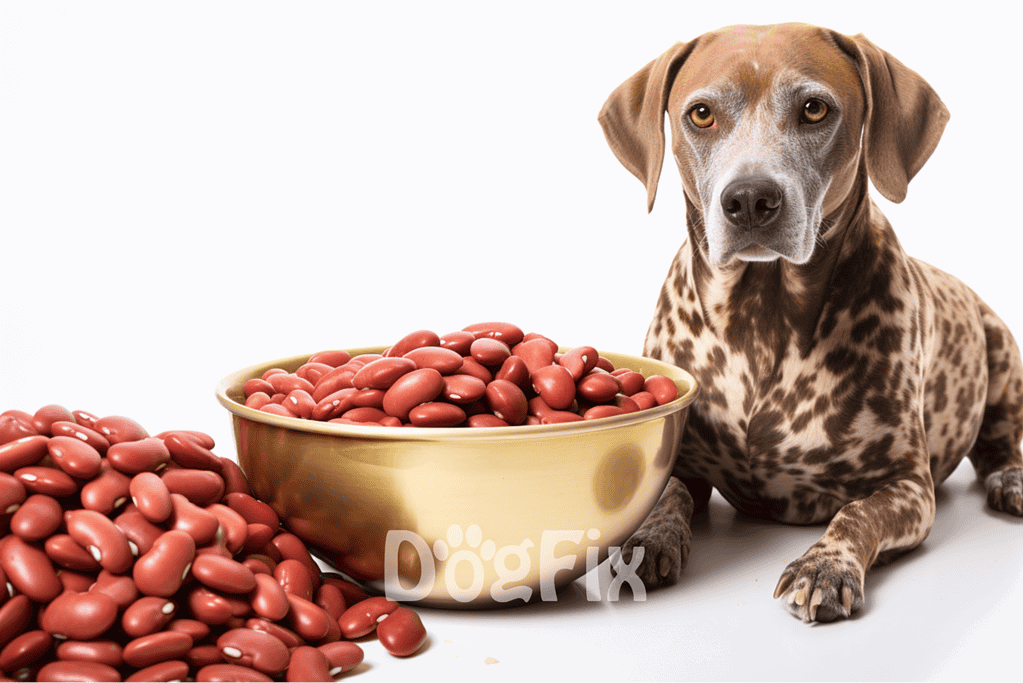
There’s no sugarcoating it: feeding your fur friends gets kind of tricky sometimes. And with beans? There are a few things you need to keep your eye on.
Raw and Undercooked Beans
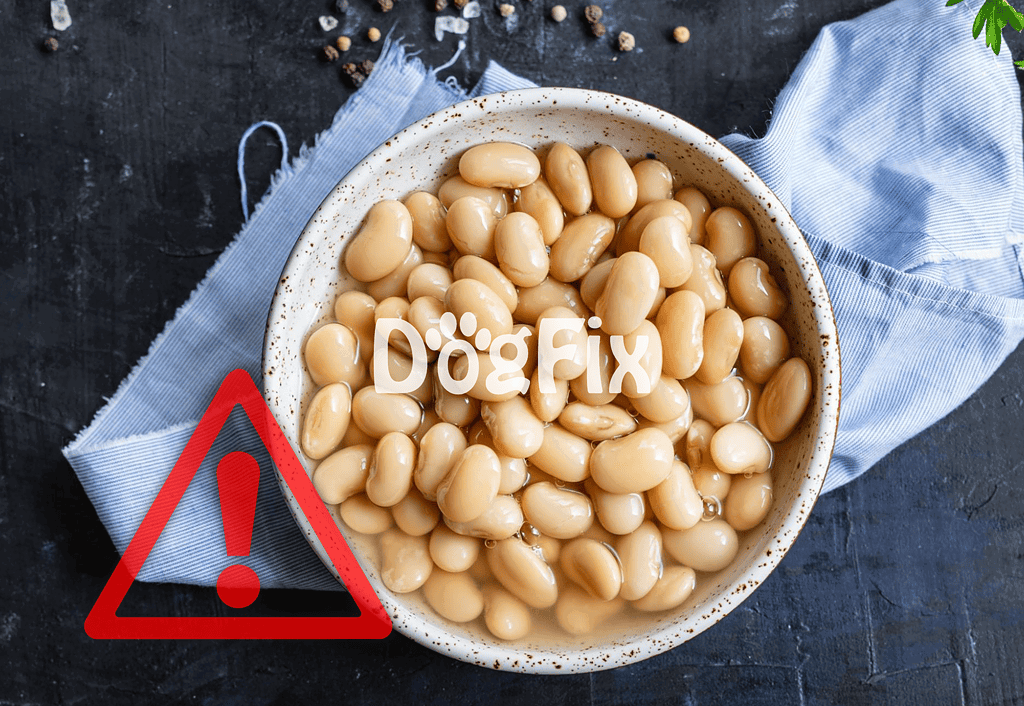
Going to toss your pup some raw or undercooked beans, especially kidney ones? Think again. Those could give your furry friend a real bellyache, leading to nausea or even throwing up. Always cook beans well before serving to your four-legged bud.
Preservatives and Additives
Canned beans can be lovely and time-saving, but did you know they might contain preservatives and other not-so-yummy additives?
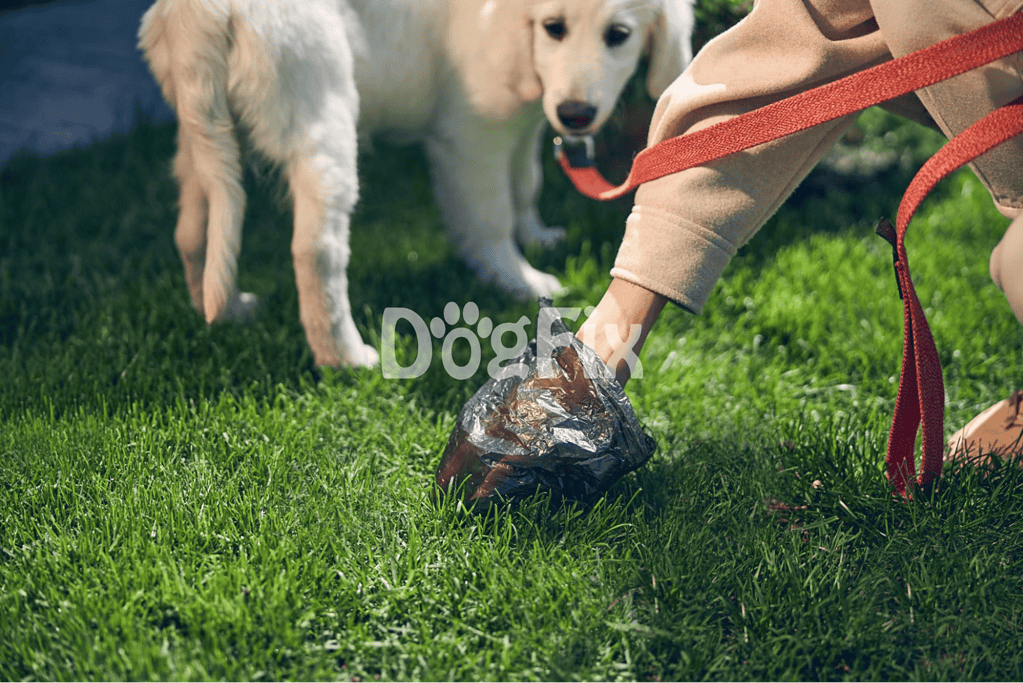
Feeding your fur pal too many of these could cause a messy bathroom situation (think diarrhea and constipation) or even more severe health problems. Stick to plain, cooked beans where you control what goes into their bowl – and their body!
High Sodium and Spices
Heavy on salt or spices, canned chickpeas can make your dog’s belly rebel. Loads of salt could even cause scary sodium ion poisoning.
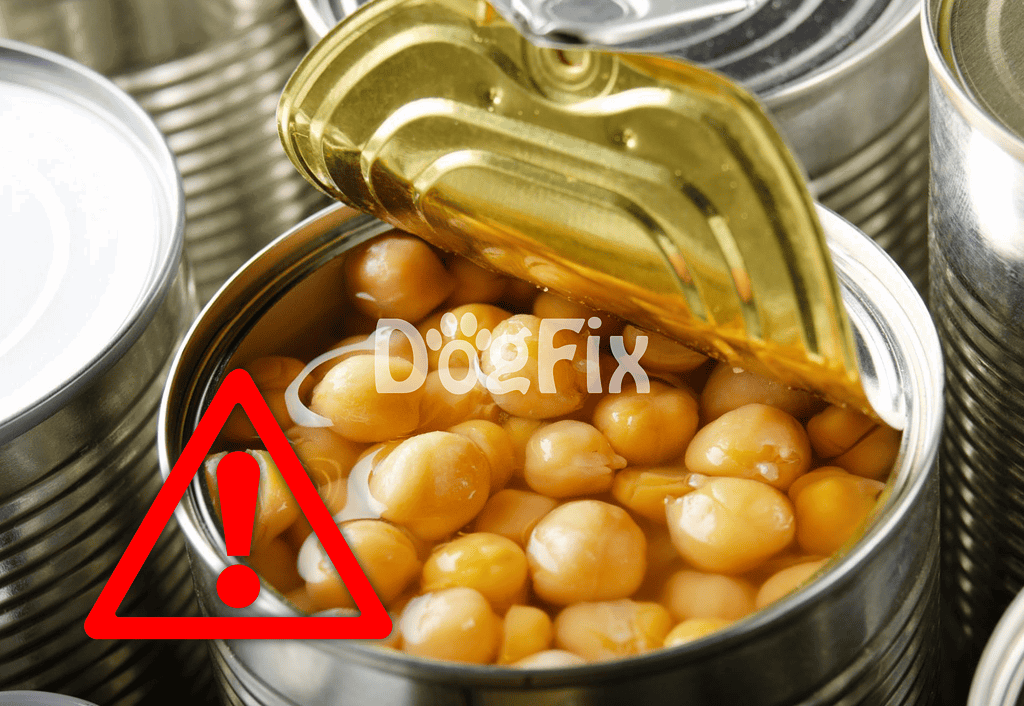
Balancing the health perks and potential risk factors of beans is key. Just serve your fur friend some quality, thoroughly cooked, no-spice beans in moderation, and you’ll have one happy, healthy doggo!
How to Serve Beans to Dogs
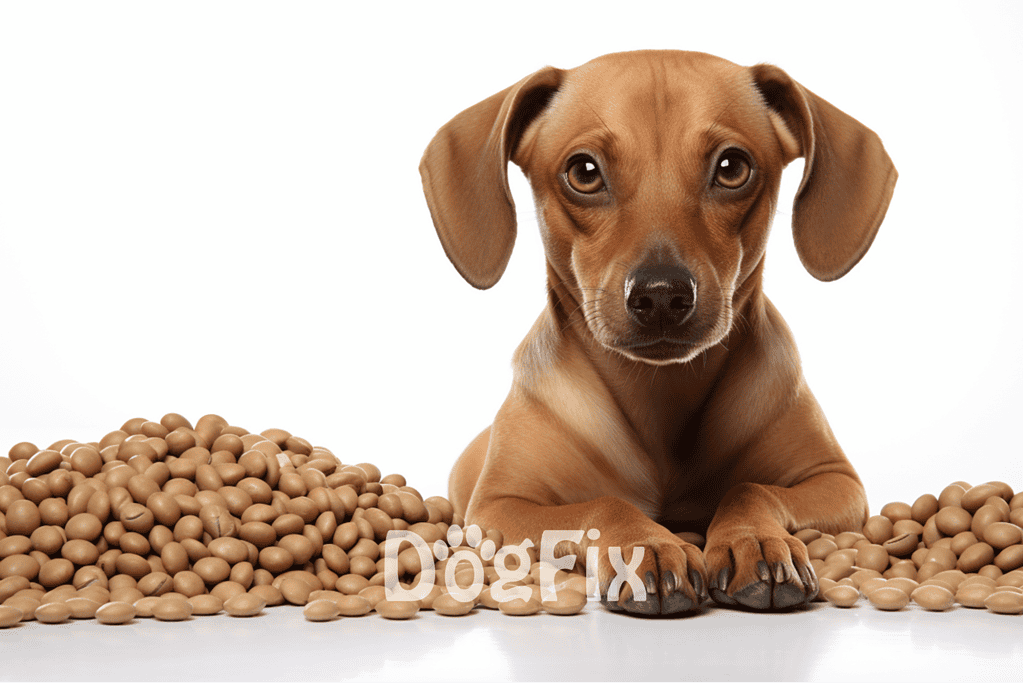
Before you turn into the MasterChef of your kitchen, let’s discuss how you can effectively serve beans to your fur pals.
Cooking
Beans and dogs can be fantastic buddies, but only if you cook them properly. You sure don’t want your precious pup to struggle with digestion, do you?
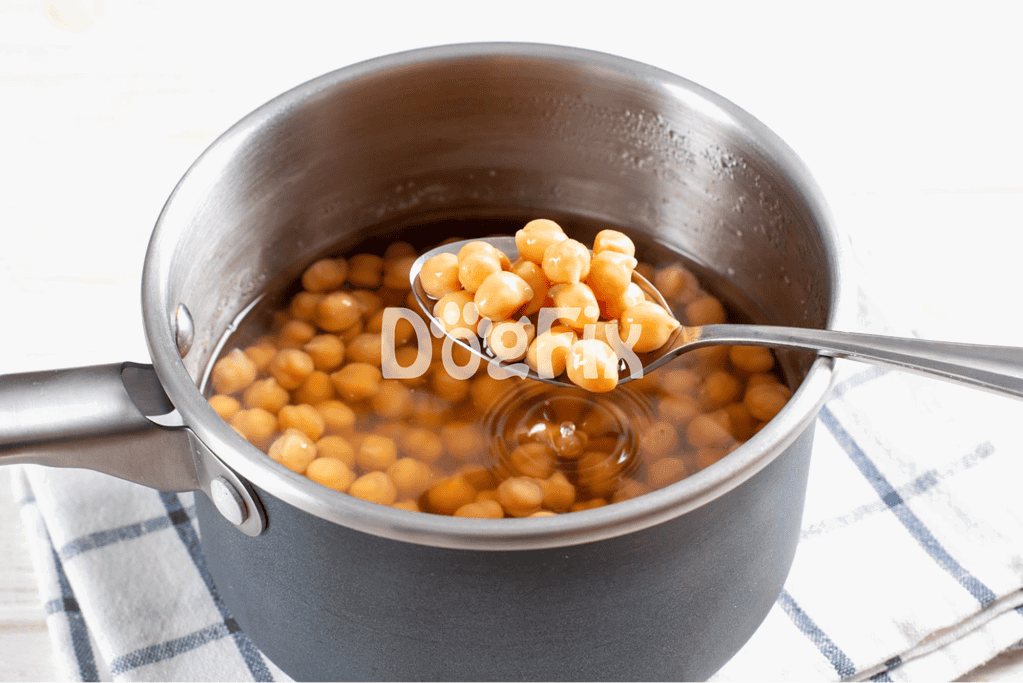
Raw or undercooked beans can cause digestive issues. So save the Mexican-style, garlic and onion-loaded beans for Taco Tuesday! For your furry friend, keep it simple – just plain beans, please.
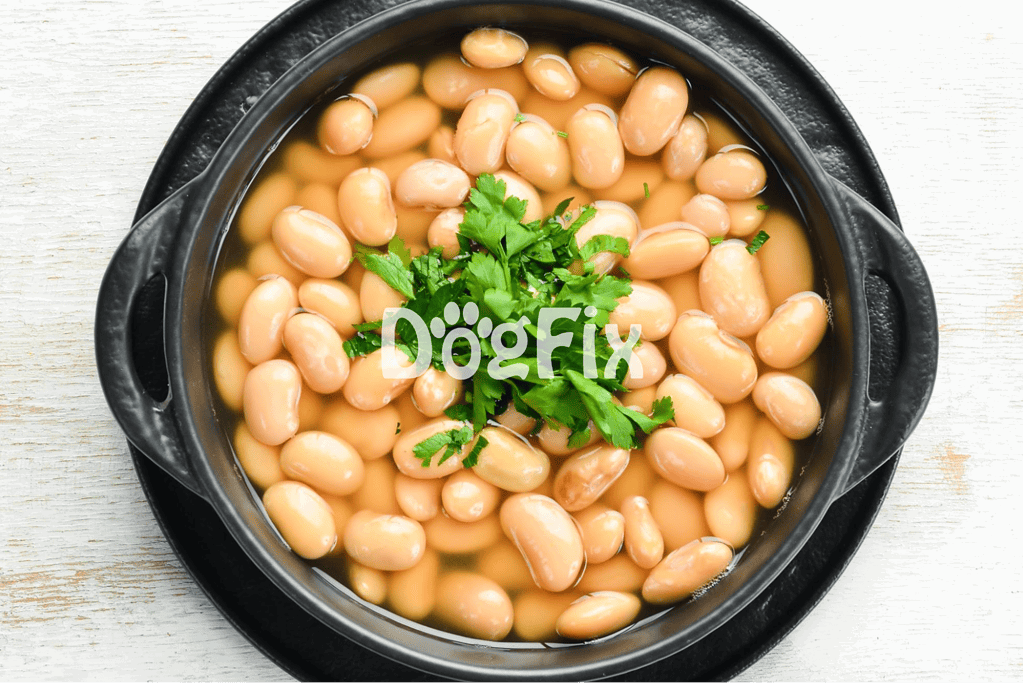
Whether it’s the star of your kitchen, the black bean, or friends like kidney beans, lentils, and pinto beans (or even the chickpea), make sure they’re softened to perfection.
For dried beans, remember to give them a good soak before cooking.
Remember, portion control is crucial! Go easy, introduce beans into your pup’s diet bit by bit, and watch for any reactions.
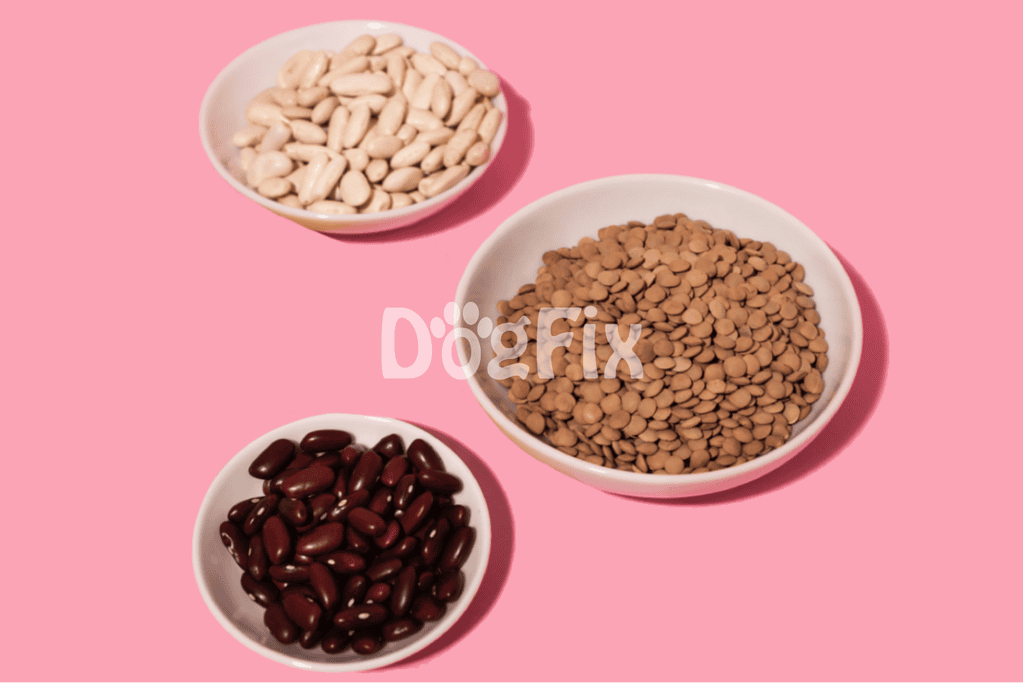
Bear in mind, beans are protein and fiber-rich, great in moderation. Too much can mean a surprise vet visit or a gassy pup! Start with a portion of beans mixed into their regular meals and gradually up the quantity.
Above all, beans shouldn’t be the main course but a supplement to a balanced diet. So feel good as you serve those beans, adding a dose of nutrition to Spot’s or Fido’s meal!
Alternatives to Beans
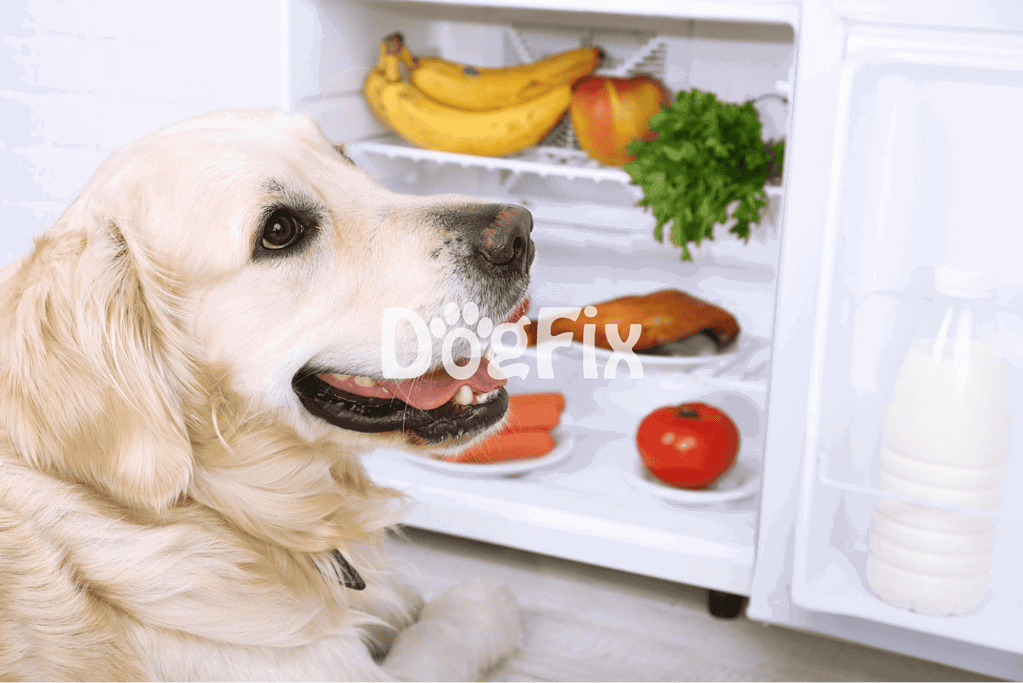
Beans are the talk of the town, sure, but let’s say your pooch isn’t a fan, or maybe you’re just looking for some variety. Well, it’s time to explore other doggie-safe alternatives!
Apples
Apples are low in calories and packed with vitamin A, vitamin C, and dietary fiber, they’re an excellent choice for your fur pal.
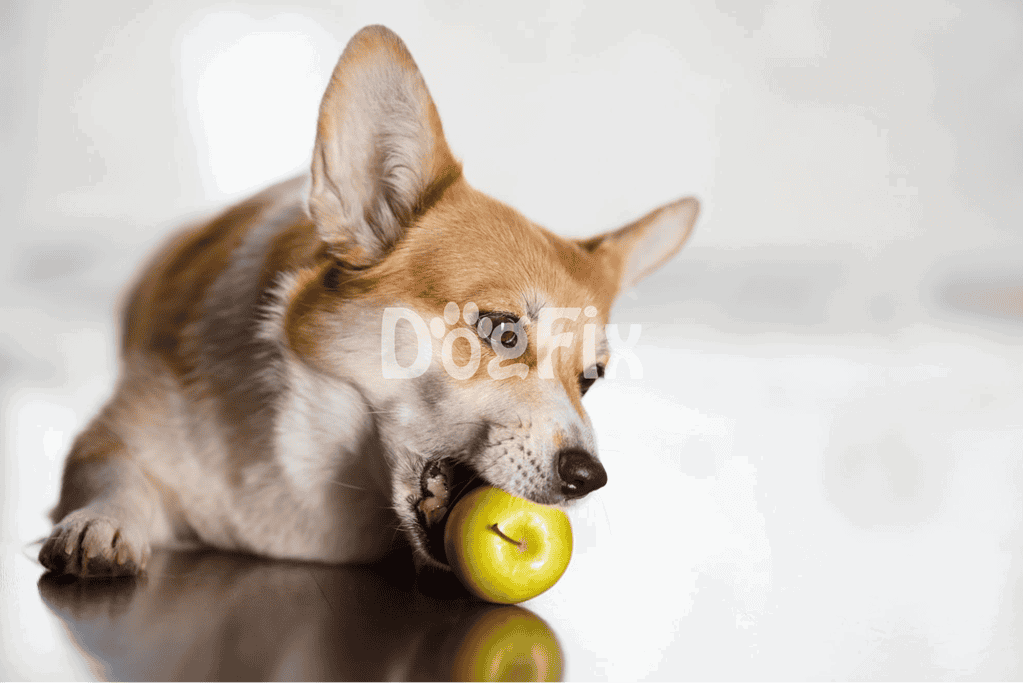
Remember to remove the seeds and core before feeding your dog an apple, as they contain cyanide, which can harm them. As always, moderation is vital to prevent digestive issues — don’t let them go apple-crazy!
Bananas
Bananas are great for your fur buddy—for all the right reasons. Jam-packed with potassium, vitamin C, and vitamin B6, they’re a hit, but use them sparingly.
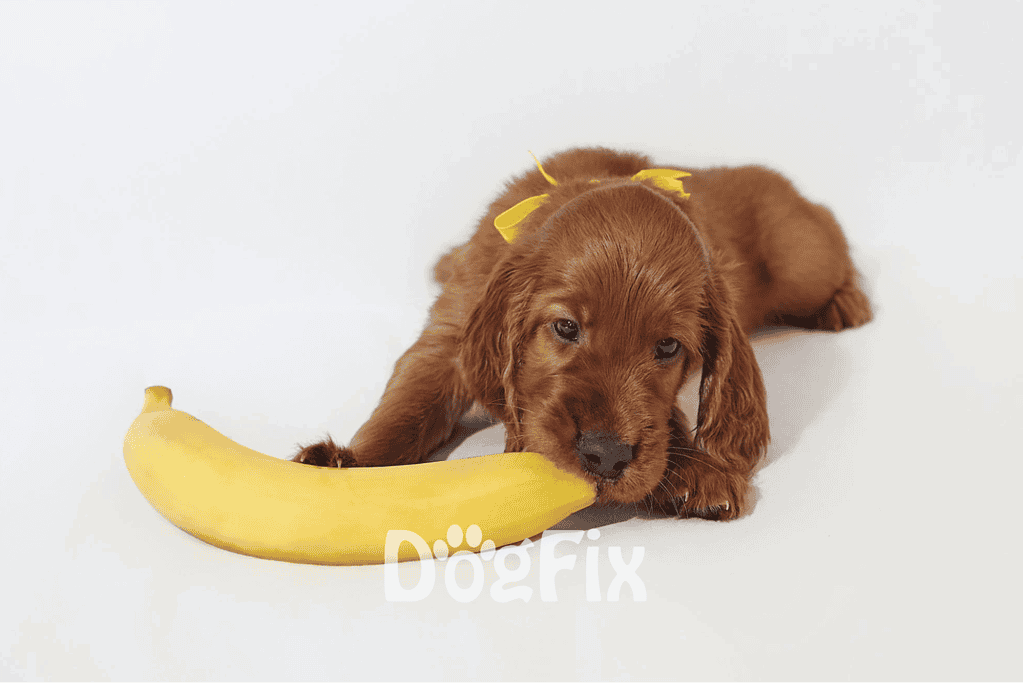
Remember, too many can lead to an overweight puppy due to the natural sugars. Stick to peeled and sliced banana nibbles for your fur-filled friend.
Blueberries
Blueberries aren’t just quaint little fruits. These tiny guys pack quite the nutritional punch, offering your fur friend antioxidants, vitamins, and fiber.
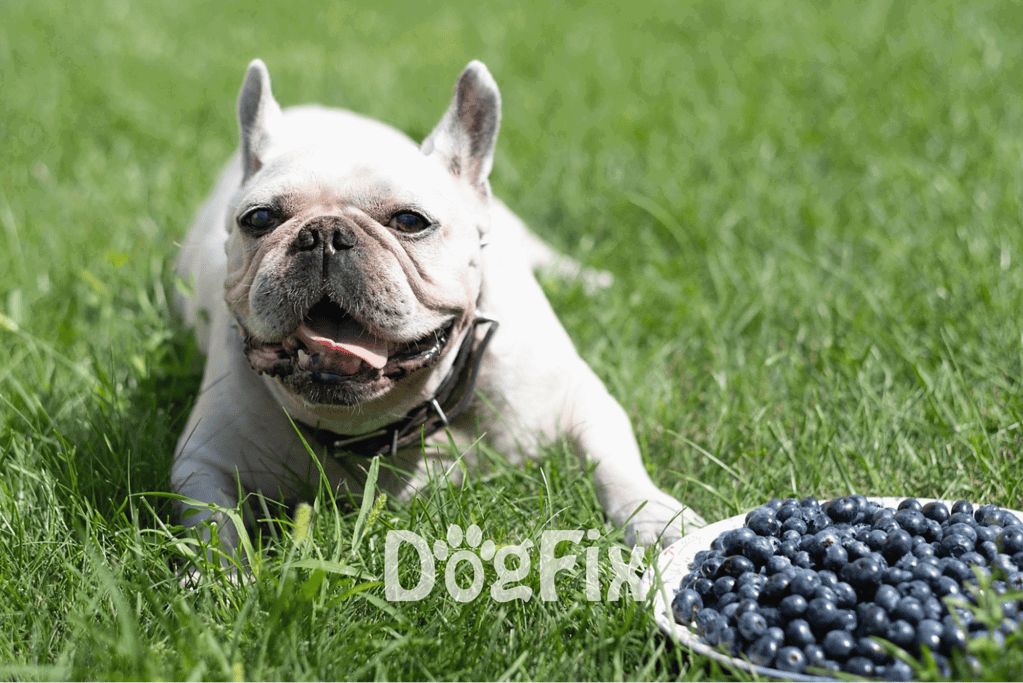
Fresh or frozen, whole or mashed—no matter the form, these berries are a terrific treat option. But remember, too much of a good thing can lead to an upset tummy, so keep their little blue splurge in moderation.
Your Bean Questions, Answered!
Can dogs consume cooked beans safely?
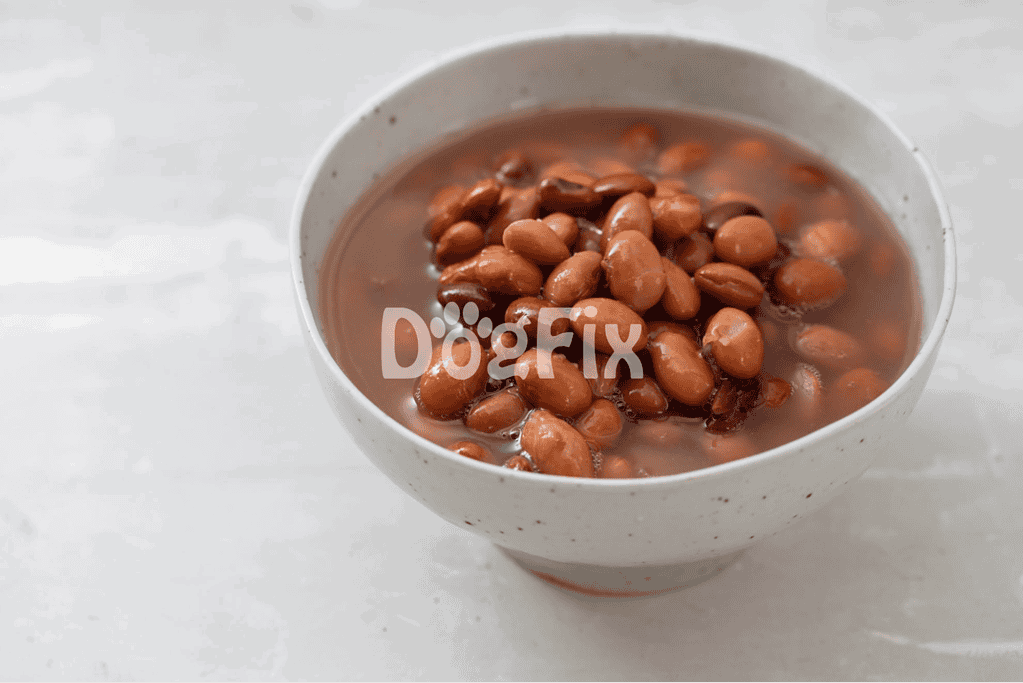
Absolutely yes! Dishing up some well-cooked beans for your pooch is a surefire way of introducing a load of proteins, fibers, and a dash of iron into their diet. Just remember to keep it simple—save the seasonings for your meals. Don’t want any upset doggie tummies, do we?
Are canned beans appropriate for dogs?
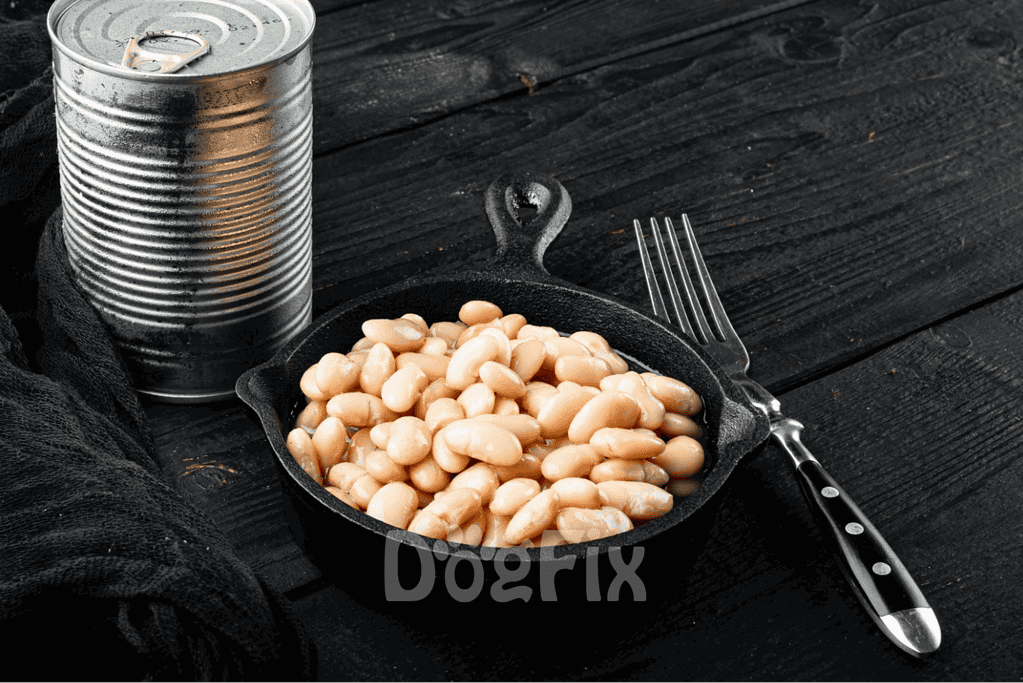
Ready to pop a can open for your fur friend? Hold on, only go for the low-sodium or no-salt varieties. Give them a good rinse to wash off any extra salt or preservatives that could do more harm than good.
Is it safe for dogs to eat rice mixed with beans?
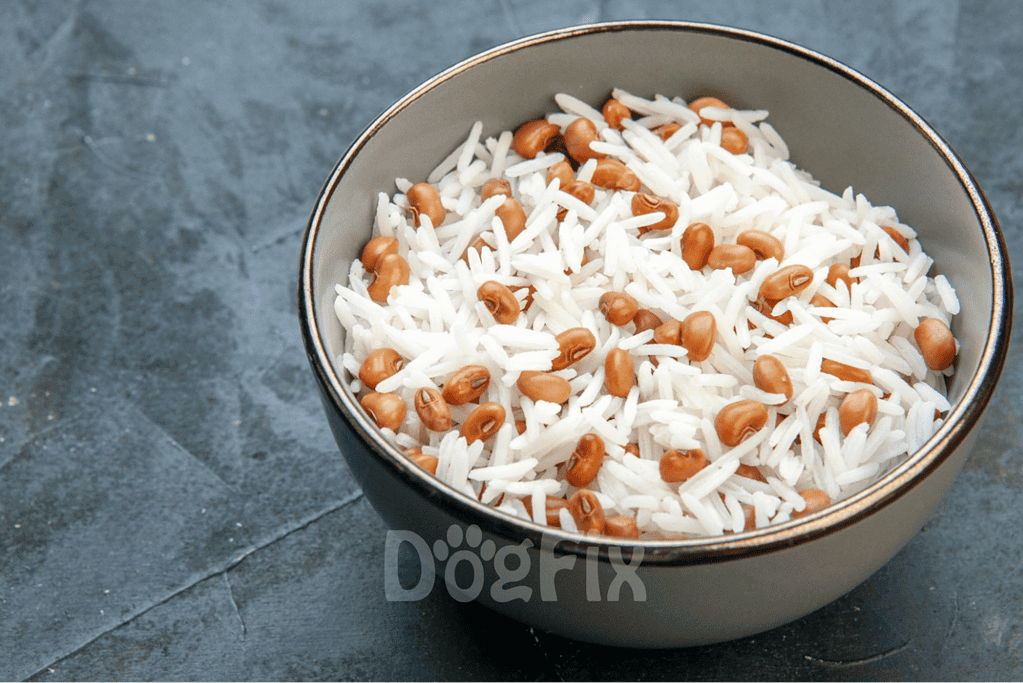
Rice and beans for dogs, you ask? Why not! Both are great sources of fiber and other tasty nutrients. Just remember, you’re not prepping for a cook-off challenge—skip the seasonings and spices that could land your pup in trouble.
Are kidney and pinto beans suitable for dogs?
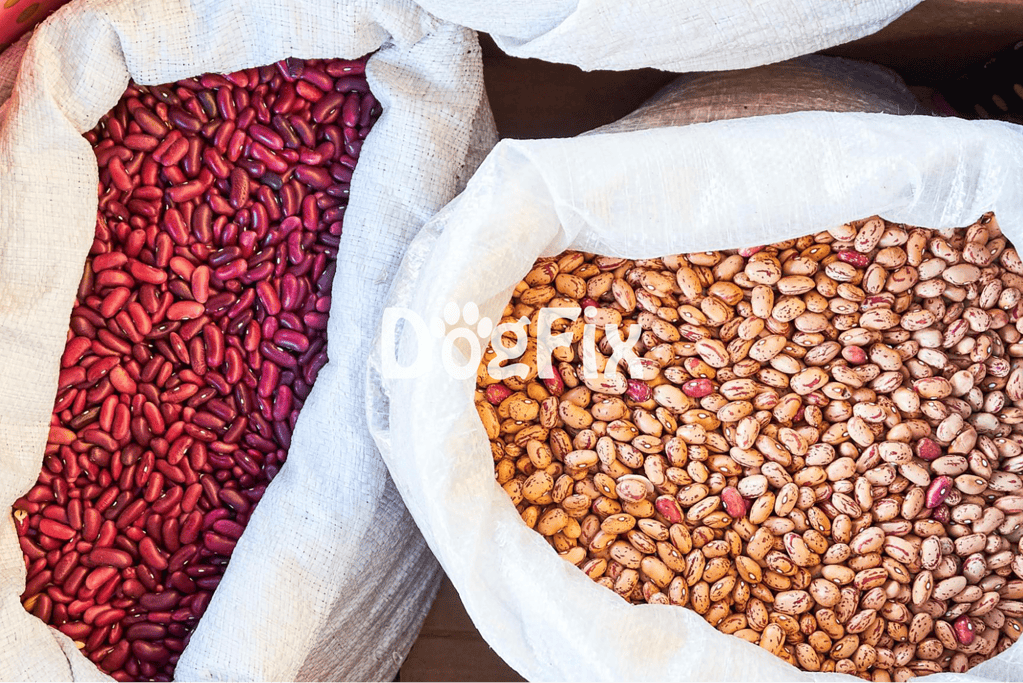
Kidney and Pinto beans? Both get the green light. High in protein and fiber, they’re a hearty addition to your dog’s diet. Again, remember to ditch the seasonings and give them a good cooking before serving.
Can dogs eat lima and Great Northern beans?
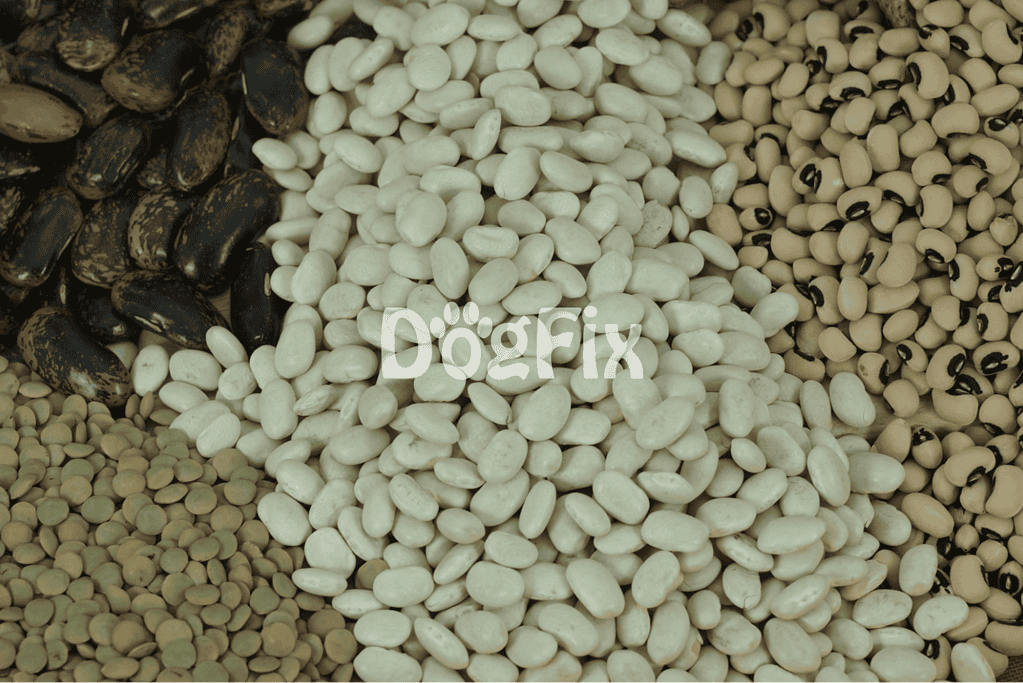
A big Yay! Lima and Great Northern beans are a go for dogs. They contain fiber, protein, and various nutrients like calcium, iron, zinc, and magnesium. Make sure they’re well-cooked, and you keep them seasoning-free.
What You Need To Remember About Dogs And Beans
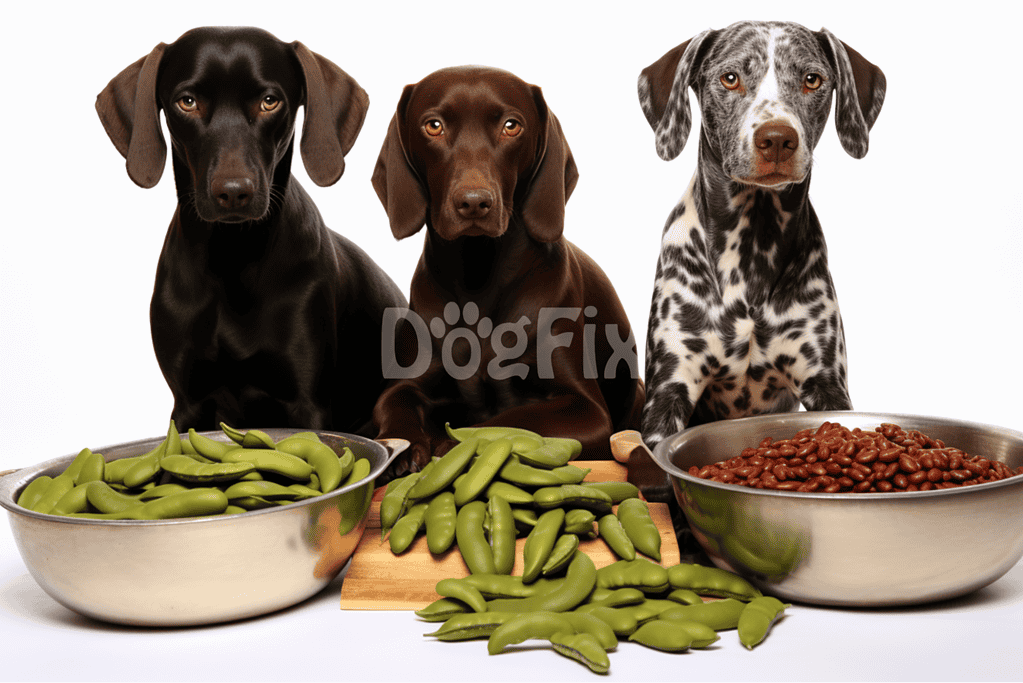
- Dogs can have most beans – they’re safe and good for them. Yum!
- These little beans pack a punch with tons of vitamins, minerals, and protein.
- Pick the right beans, cook ’em right, ditch the seasoning. Stay safe!
